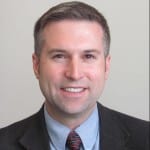Podcast: Download (63.2MB)
Subscribe: RSS
 Rick Anderson is Associate Dean for Scholarly Resources & Collections in the J. Willard Marriott Library at the University of Utah. He earned his Bachelors and Masters in .Library Information Systems degrees at Brigham Young University. He serves on numerous editorial and advisory boards and is a regular contributor to the Scholarly Kitchen blog and to Library Journal’s Academic Newswire.
Rick Anderson is Associate Dean for Scholarly Resources & Collections in the J. Willard Marriott Library at the University of Utah. He earned his Bachelors and Masters in .Library Information Systems degrees at Brigham Young University. He serves on numerous editorial and advisory boards and is a regular contributor to the Scholarly Kitchen blog and to Library Journal’s Academic Newswire.
In 2005, Rick was identified by Library Journal as a “Mover and Shaker”—one of the “50 people shaping the future of libraries.” In 2008 he was elected president of the North American Serials Interest Group, and was named an ARL Research Library Leadership Fellow for 2009-10. In 2013 Rick received the HARRASSOWITZ Leadership in Library Acquisitions Award and was invited to give the Gould Distinguished Lecture on Technology and the Quality of Life at the University of Utah. Welcome the man who makes being a librarian cool, Rick Anderson. Rick Anderson is the author of the article in the Interpreter entitled Mormonism and Intellectual Freedom.
Questions Rick Anderson addresses in the episode:
I would assume, especially considering your many accolades and accomplishments professionally, that you spend a great deal of time around some of the brightest minds in your field, and to a certain extent, other fields as well. As a library management professional, you have to know a good bit of information about a lot of subjects. I have heard these individuals referred to as intellectual polygamists. With that being said, the genesis of your article, Mormonism and Intellectual Freedom, comes from a friend making what appears to be an ironic assumption. Could you flesh out that story a little?
Right now there is a great deal of discourse online regarding the quest for dovetailing intellectual pursuits in a spiritual or religious context. Lines are being drawn in the sand. What then is the role of scholarship in religious endeavors?
We hear people use two terms almost synonymously and I think that is the cause of some confusion in the discourse to which I am referring. Questioning, and doubting. How are these two terms different when considering this pursuit of knowledge?
